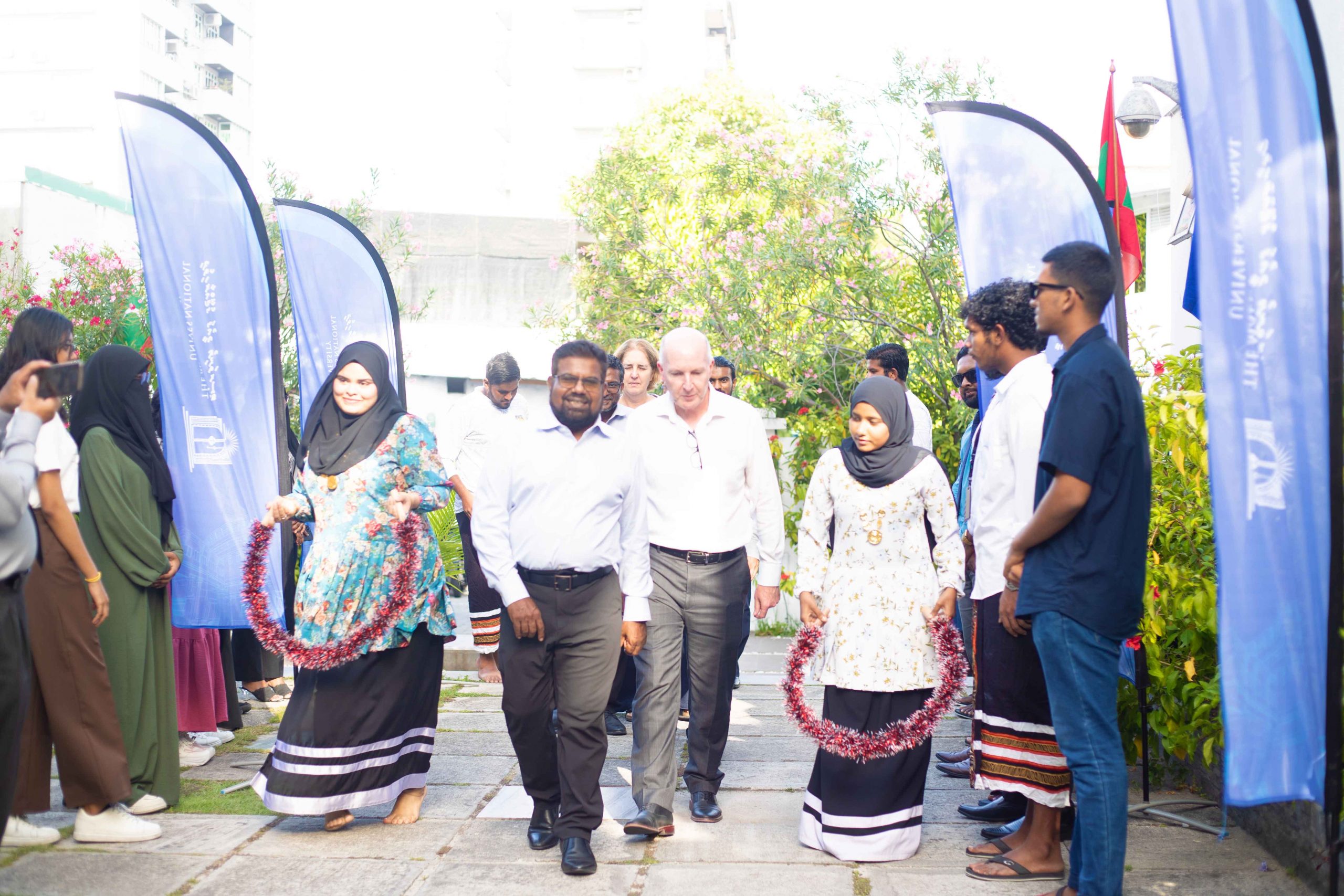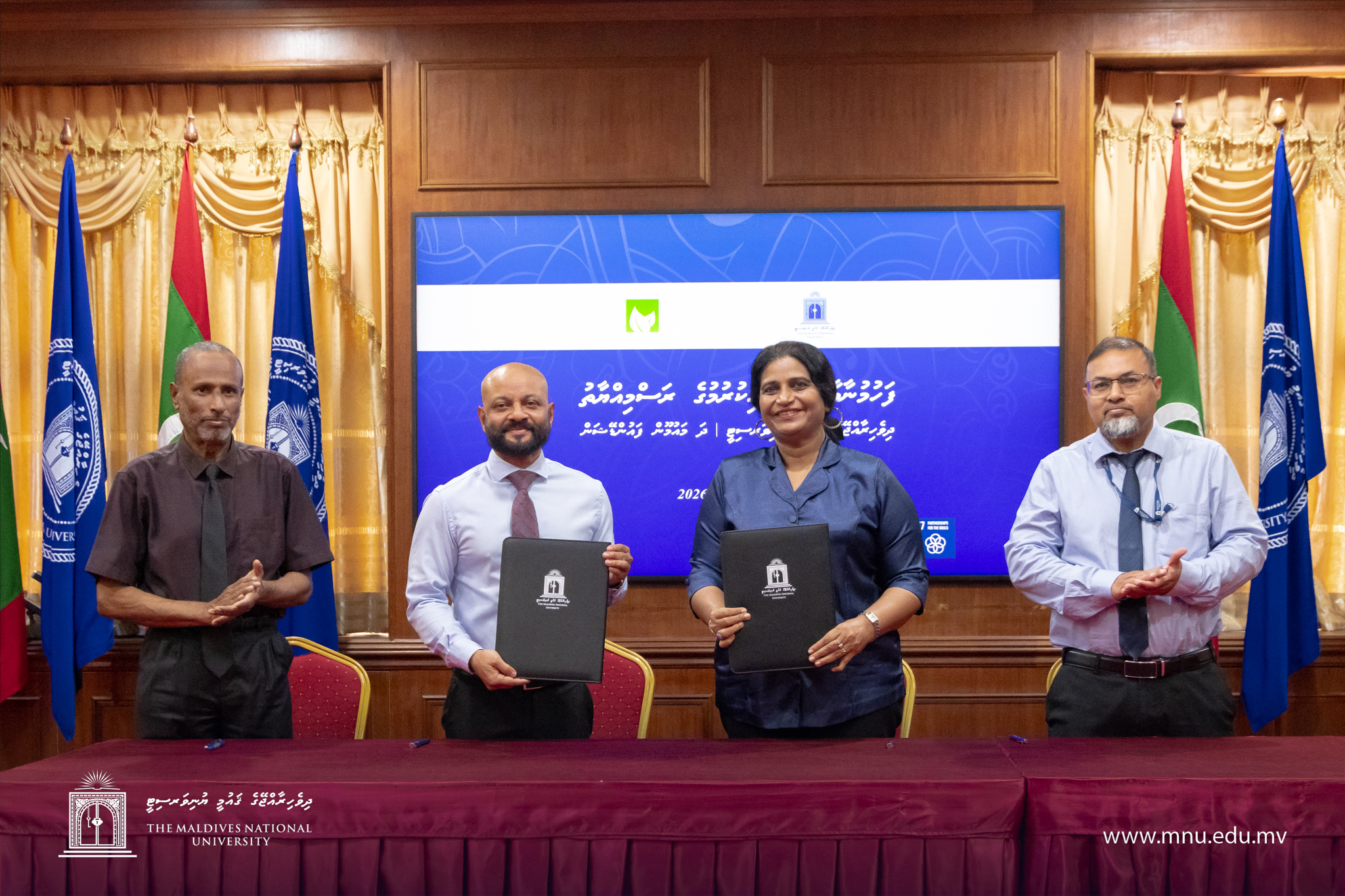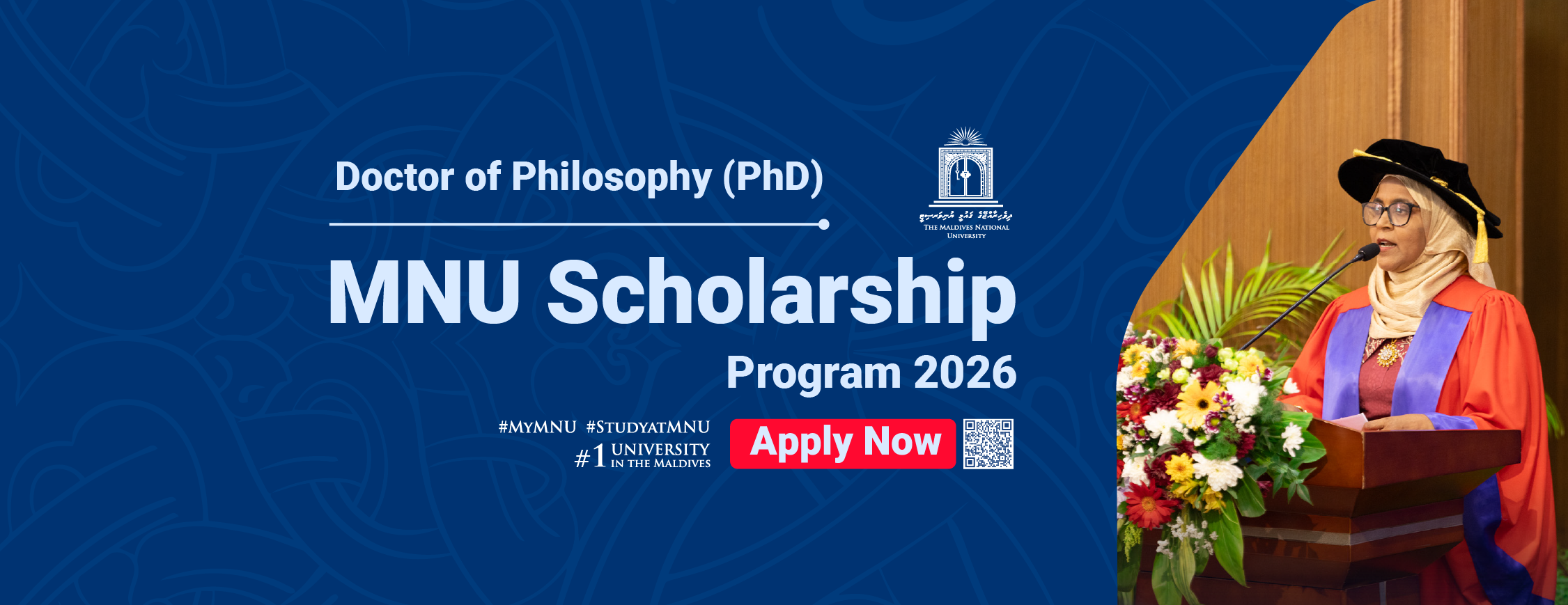The Maldives National University Launches Pioneering Campus Kitchen Garden Initiative

The Maldives National University (MNU) has taken the lead in promoting sustainability by launching a campus kitchen garden at MNU. The inauguration ceremony, held on June 5, 2024, featured opening remarks and a vote of thanks from Abdul Rahman Mubaarqiue, Deputy Vice-Chancellor (Administration and Finance).
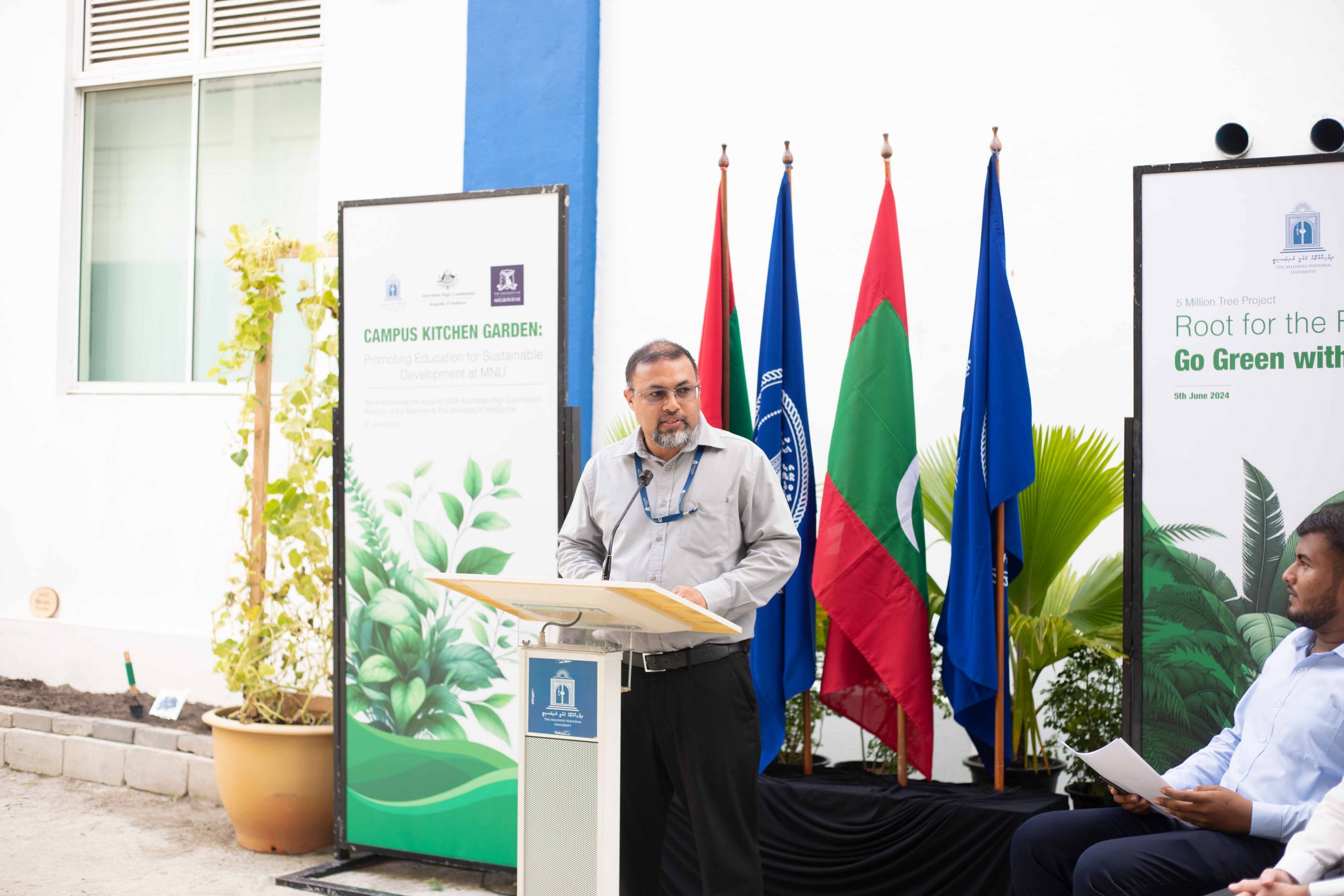
This initiative has garnered support from the Australian High Commission, The Republic of Maldives, and the University of Melbourne. His Excellency, David Jessup, Australian High Commissioner, graced the event as the Chief Guest and ceremoniously planted the first seed. The Australian High Commission also provided a gardening kit to facilitate the project’s ongoing activities. Furthermore, Dr. Rhonda Di Biase, a visiting scholar from the University of Melbourne, actively supported the project with practical ideas focused on sustainable practices, relevant to the Maldivian context.
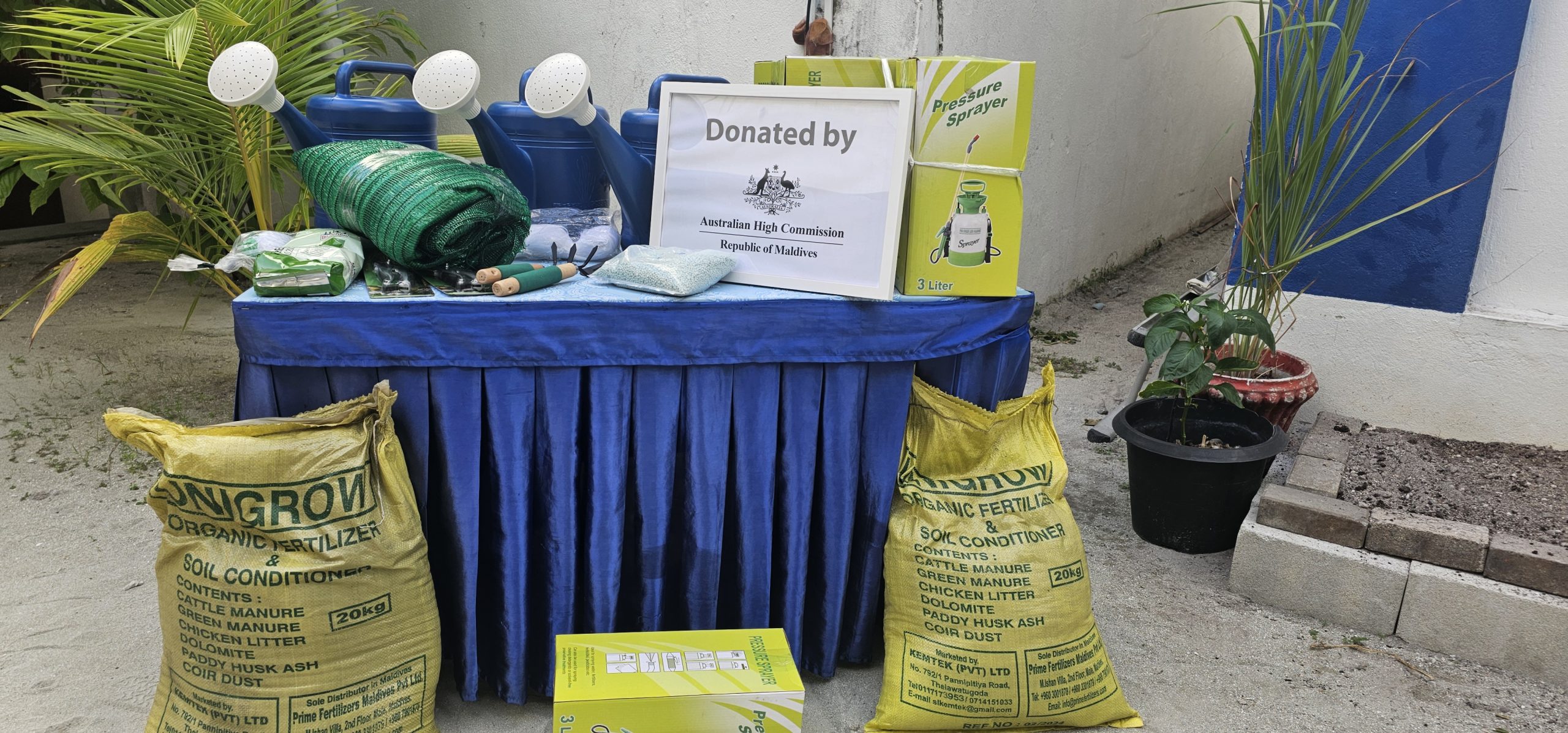
The kitchen garden project aims to foster sustainable outcomes and provide both curricular and co-curricular opportunities for MNU students. It seeks to reconnect individuals with the sources of their food, understanding how it grows and where it originates. The garden beds were constructed using existing materials, such as used bricks, to ensure a quick and easy build. During the launch event, pumpkin, basil, chili, and cucumber were planted in the garden beds.
This kitchen garden will supply fresh produce for the Faculty of Hospitality and Tourism’s cooking classes, thereby reducing food miles and dependency on imported food. Additionally, a composting system has been established to handle food scraps from the FHTS kitchen. The NGO, Live and Learn will train students on effective composting strategies suitable for the Maldives, teaching them how to manage and utilize compost efficiently.
Food waste constitutes a significant portion of household waste in the Maldives. This initiative aims to address this issue by reducing landfill waste and providing nourishment for the kitchen garden. The project is intended to start small with plans for expansion across other MNU campuses and faculties. For instance, the Faculty of Education could use the campus garden as a model for school kitchen gardens, highlighting the multiple positive learning outcomes such as experiential learning, nutritional literacy, agricultural understanding, better health outcomes, and environmental sustainability awareness.
Research indicates that kitchen gardens offer a “curriculum in one,” connecting various subjects like science, social studies, health, literacy, mathematics, and sustainable practices. Other faculties can contribute their expertise to this garden, making it a collaborative and comprehensive educational tool.
The MNU kitchen garden aspires to be a model for establishing similar gardens in communities and schools, providing a range of learning opportunities and promoting sustainable practices.





